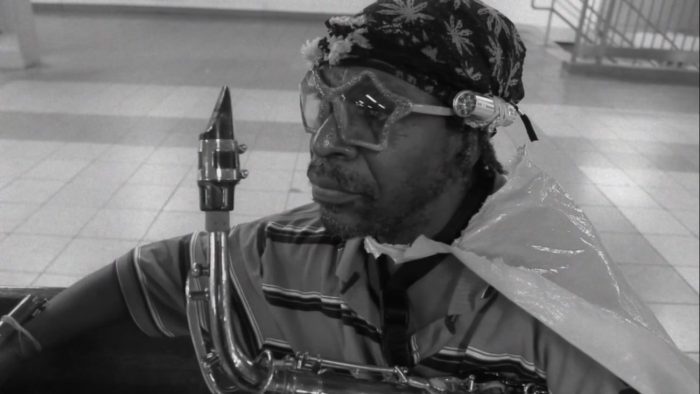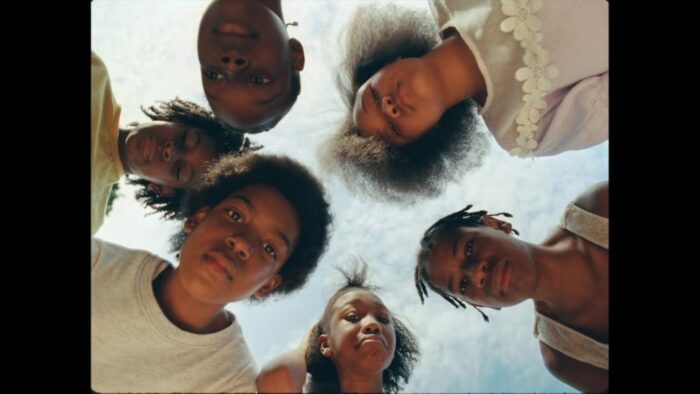Each month, dozens of new films are added to the Criterion Channel. While the rich selection of feature-length classic and independent films obviously gets a lot of well-deserved attention, I wanted to shine a little light on some of the short films. I believe that shorts should get a lot more attention than they typically do—they are breeding grounds of experimentation and non-traditional storytelling, and often are important outlets for marginalized voices.
This month featured the largest amount of short films to be added to Criterion Channel since March! The selection included only a handful of narrative short films and was instead very documentary-heavy, which will be reflected in my own selections of the films in this column. The slate was highlighted by films from Caroline Monet, Oscar-nominated Garrett Bradley, A.V. Rockwell, plus UnionDocs’s Living Los Sures project. It was a strong slate of films, and it was definitely difficult to narrow down the films I would talk about.
While this article is exclusively focusing on short films that are on Criterion Channel, I’m also keeping track of all of the short films I watch in monthly Letterboxd lists, whether on Criterion Channel or elsewhere. I’ve listed the streaming service that I watched them on, with the films that I talk about in this article marked in the notes with two asterisks. Feel free to follow me and the lists on Letterboxd and feel free to reach out to me on Twitter if you want to discuss any of the short films. Without further ado, let’s get into the films!
The Dreamer (2012, 6 minutes), dir. by A.V. Rockwell

I had some internal debate about including this short documentary. The subject, Larry “Antenna Man” Connor, is vulgar and, despite his claims to the contrary, quite misogynistic. Larry is a longtime New York street musician—or, more accurately, train musician. At points, he harasses random bystanders, and his “audience” generally seems more annoyed by his presence than entertained.
In the end, though, this is a column about my favorite short films on the Criterion Channel, and this was, in my eyes at least, one of the most memorable. Moments of humor, like a bystander incredulously asking the camera “Who is this man?” after paying for Larry to get into the subway, had me actually laughing out loud. Connor is a fascinating character. His getup—which includes a trash bag cape, star-shaped glasses, and a flashlight strapped to his head for seemingly no reason—provides a strange dissonance to the sometimes heartbreaking scenes that follow. The most notable of these scenes is towards the end of the film, when tears stream down Larry’s face as he plays his saxophone after talking about his late wife, which, along with Larry himself, was one of the most indelible images of the entire month’s slate of films.
Third Shift (2014, 20 Minutes), dir. by Anthony Banua-Simon

Several of the short films on Criterion Channel this month deal with labor issues, including Third Shift, which recounts the story of the Domino Sugar Refinery in Brooklyn, NY, through the eyes of two men (Francisco “Frank” Ortiz and Juan “Johnny” Mendez) that had worked in the plant for decades. At one time, the refinery, which operated for over a century, was the largest sugar refinery in the world, but at the point when the documentary was made, the plant was a modern-day ruin stuck in redevelopment after it had closed due to rising costs in Brooklyn.
The documentary focuses on numerous important social issues, including labor (the plant was the site of one of the longest labor strikes in US history) and gentrification, but it’s also about the spaces in which we spend, in some cases, the majority of our lives. The two men took great pride in working at the plant, and seeing it in its neglected state upsets them. The building, however, is purposefully placed in contrast to a community garden started, in part, by Johnny. It is a space where Johnny feels he can do fulfilling work with no expectations, saying “The difference between Domino and here, is in here, I can come in any time without punching my time card.” Inherent in Johnny’s statement, however, is the belief that Domino was still a space where he enjoyed working, and even if he vehemently rejects having dreams where he is still working there, the relationship to the space can be seen in both men through the rest of the short.
Álvaro (2015, 14 minutes), dir. by Elizabeth Delaune Warren, Alexandra Lazarowich, Daniel Wilson, and Chloe Zimmerman

I will admit that I have somewhat selfish reasons for enjoying Álvaro. The short film documents an elderly man who spends hours a day feeding dozens of stray cats across Brooklyn. We recently encountered a small kitten on our back porch. Over the next few weeks, I took to feeding her before and after work. Getting to know her personality, the excitement of catching a glimpse of her eating through the window, attempting to build enough trust to where she would approach us. And this was just one stray cat, so I instantly recognized the sense of purpose that doing the same for dozens could give someone.
Álvaro, of course, isn’t just about a man and his cats; the film is about the ever-changing social landscape of New York, memory, and aging. Álvaro recounts several stories of his life, and is able to remember a complicated schedule and specific details about the various cats that he feeds; this is in stark contrast to his wife, who at the time was suffering from Alzheimer’s. While we never see her in the short, he has to tend to her as well. The couple has lived in the same apartment for nearly 50 years, but their neighbors have changed, and he rarely encounters anyone as old as him. Even though he speculates that “It’s going to be a lonely funeral for me,” Álvaro has found a way to give back to the world in a way that he clearly loves and fulfils him.
Don’t Go Tellin’ Your Momma (2021, 35 minutes), dir. by Topaz Jones and rubberband.

Unlike Solange’s When I Get Home (which is also available on the channel), describing Don’t Go Tellin’ Your Momma as a long-form music video doesn’t quite capture everything that is going on with the film. Topaz Jones’ music almost takes a backseat. Oftentimes, only snippets of the music are played, and just as frequently, these snippets are subverted by suddenly cutting them off.
Rather, what takes the forefront are short skits, images of Jones’ hometown of Montclair, New Jersey, and interviews about social justice issues and the Black experience in America. The form of the film is shaped by the alphabet. Before each discrete segment, a chant is heard in the mould of “A is for…” or “B is for…,” etc, with the word then shaping the topic of the segment. Sometimes the word explicitly shapes it, for instance, “C is for code-switching” precedes an interview about code-switching, while other times the word more abstractly shapes the subsequent scene. The most jarring word/letter combination, in my opinion, is also the first one: “A is for amphetamine.” The dissonance between the childlike intoning of a phrase that is supposed to be used to teach young children the alphabet and a hardcore drug like amphetamines (just imagine, for a second, Cookie Monster singing C is for Cocaine instead of cookies), catches the audience’s attention from the very first moment. The intimacy and importance of the interviews, the inventive form, and the sonic richness of the short make Don’t Go Tellin’ Your Momma one of the best short films on the Criterion Channel.
Closing
This is just a taste of the short films on Criterion Channel! What were some of your favorites? Was there a filmmaker whose filmography you’re excited to dive deeper into? Let me know in the comments what stuck out to you, or reach out to me on Twitter, and I’ll be back next month to look at some more Criterion Channel short films!


